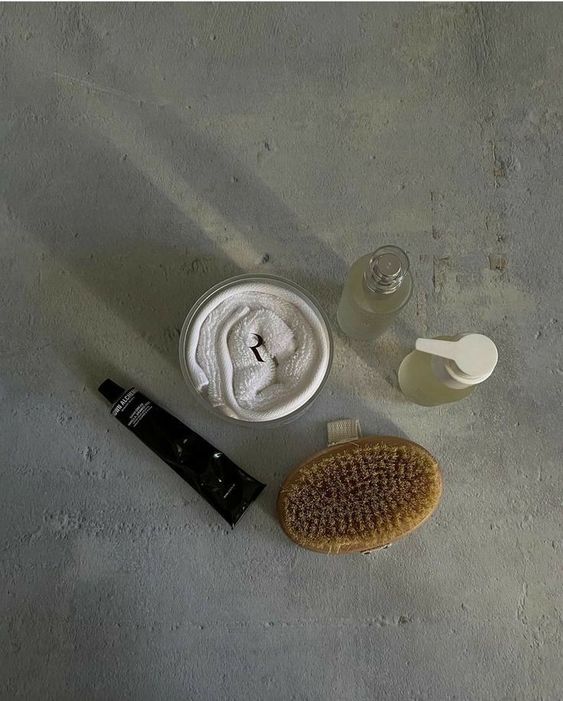
Just when you thought you had enough problems to worry about, taking care of your sensitive skin always seems to be on the top of your list! Well, we have gathered the perfect do’s and don’ts list of how to take care of your sensitive skin...
When someone is prone to skin reactions, it is commonly referred to as sensitive skin. In reality, sensitive skin falls into the category of a skin condition. This explains why most of us, some more than others, have gone through periods of “reactivity” throughout our lives, regardless of our skin type. Back in 1987, American dermatologist Howard Maibach coined the term Cosmetic Intolerance Syndrome (CIS) to clinically describe for the very first time what is known today as sensitive skin[1].
Sensitivity is more prevalent in women than in men (60-70% vs 50-60%), especially those of European ancestry[2].
Unfortunately, this issue seems to be on the rise mainly due to poor lifestyle habits, excessive use of cosmetic formulas as well as higher concentrations of pollutants[3]. Children and the elderly are also likely to suffer from sensitivity because their skin is thinner and their acid mantle can be easily disrupted. This condition constitutes a cutaneous reaction, usually with little or no visible clinical manifestations, triggered by chemicals, soaps, cosmetics, pollution, water, etc., internal, ingestion of alcohol/spicy foods as well as digestive and hormonal imbalances and physical factors, cold, heat, wind, UV radiation. Psychological factors such as anxiety, stress, depression can and do worsen sensitive skin signs and symptoms. These are all factors that we are exposed to on a daily basis, but people that complain from having sensitive skin respond to them in a much more acute way. Since sensitive skin has a lower threshold to the aforementioned factors, it will develop a burning, tingling, and tightness sensation when exposed to them. In more severe cases, peeling, mild itchiness, irritation will also appear.
As opposed to skin sensitivity, skin allergies involve a full-blown immune response (release of histamine, T-cells, etc.) that is characterized by redness, edema, welts, blisters, and severe itchiness. This immune response worsens each time the person is exposed to the antigen. It can be so strong that it will spread to other areas of the body and even cause a life-threatening anaphylactic shock.
According to research, the underlying cause of sensitive skin is both a disturbance of its skin barrier
function and dysfunction of the sensory receptors found on the stratum corneum, the outermost layer of the
skin[4]. The lack of proper protection on the surface of the skin increases the
penetration potential of a wide variety of irritating substances and also stimulates the action of
pro-inflammatory agents[4]. Having overly reactive sensory receptors translate into
unpleasant sensation(s) whenever the skin is exposed to different types of stimuli[4].
Although sensitivity is more commonly observed on the face, it can also be present in other areas of the body
namely the hands, the genital region, the forearms, and the scalp.
Your Guidebook for Sensitive Skin: Do's & Don'ts
- Do… cleanse your skin with tepid water.
- Do… cleanse your skin only 1-2 times per day with a mildly acidic formula (pH 4.5-5.5). Micellar waters, milk, lotions, creams, and gels (for the body) are ideal for you.
- Do… keep showers and baths short and sweet.
- Do… install a filter to remove minerals from hard water.
- Do… skip brushes, scrubs, sponges, towels that contain or are made with abrasive materials.
- Do… keep your skincare routine fairly simple.
- Do… patch-test every single new formula.
- Do… introduce one product at a time.
- Do… become ingredient savvy and read labels carefully.
- Do… favor toners, serums, moisturizers, and masks that contain high concentrations of antioxidants, soothing, emollient (softening), and hydrating actives such as aloe vera, algae/seaweed, apples, berries, beta-glucan, calendula, chamomile, coenzyme Q-10, grapes, green tea, lavender, hyaluronic acid, niacinamide, oats, pantothenic acid (vitamin B5), rose, turmeric, vegetable oils, and butter.
- Do… cut back on products if you suffer a flare-up.
- Do… shield your skin from damaging UV rays. Apply a mineral-based sunscreen, made with titanium dioxide and zinc oxide and wear protective clothing, sunglasses, a wide-brimmed hat, etc. when outdoors.
- Do… drink plenty of water; at least 2 liters per day.
- Do… maximize your consumption of antioxidants (berries, leafy green vegetables, grains, etc.), healthy fats (fish, avocadoes, cold-pressed oils, nuts & seeds), and prebiotic/prebiotic-rich foods (kefir, yogurt, honey, artichokes, bananas, etc.).
- Do… minimize your ingestion of corn, eggs, food additives, salt, shellfish, soy, and high glycemic index foods because they act as allergens and promote inflammation.
- Don't… cleanse your skin more than twice per day.
- Don't… exfoliate your skin more than once per week.
- Don't… use hot water for bathing, cleaning, or showering.
- Don't… consume hot drinks.
- Don't… eat hot and/or spicy foods.
- Don't… go overboard with gluten and dairy products. If possible, completely eliminate them from your diet.
- Don't… indulge in alcoholic beverages as well as sugary and processed foods.
- Don't… go outside without properly protecting yourself.
- Don't… use products that contain toxic ingredients like petrochemicals, parabens
- Don't… use pH-disturbing/harsh ingredients such as acids (AHAs and BHAs) alcohol, antibacterial agents, retinol, artificial fragrances, and soaps.
- Don't... undergo aggressive cosmetic procedures like chemical peels, dermaplaning, laser resurfacing, and microdermabrasion.
In order to be able to maintain your sensitive skin, make sure to stick to our list of do’s and don'ts. To learn more about how to take better care of your skin, make sure to visit our Instagram, Facebook, Pinterest, and Linkedin accounts.
Reference




